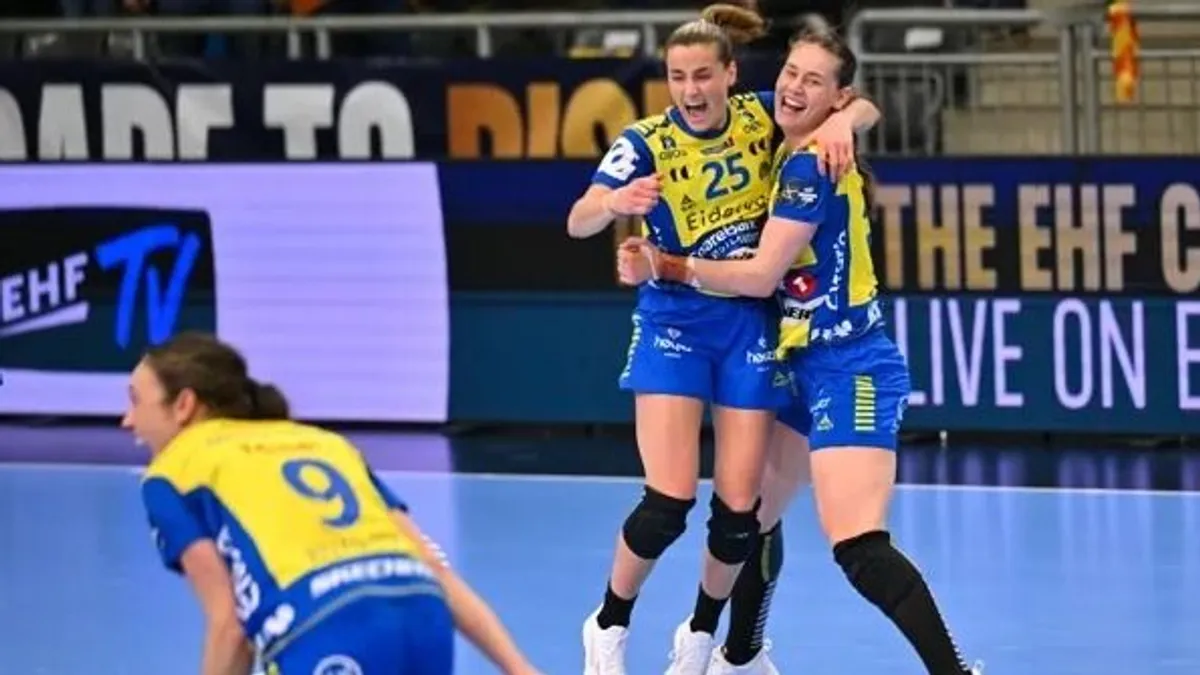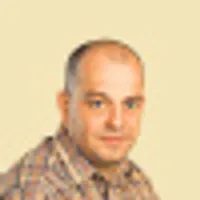Zsolt Kalmár: What I hoped for has happened, I came back stronger!
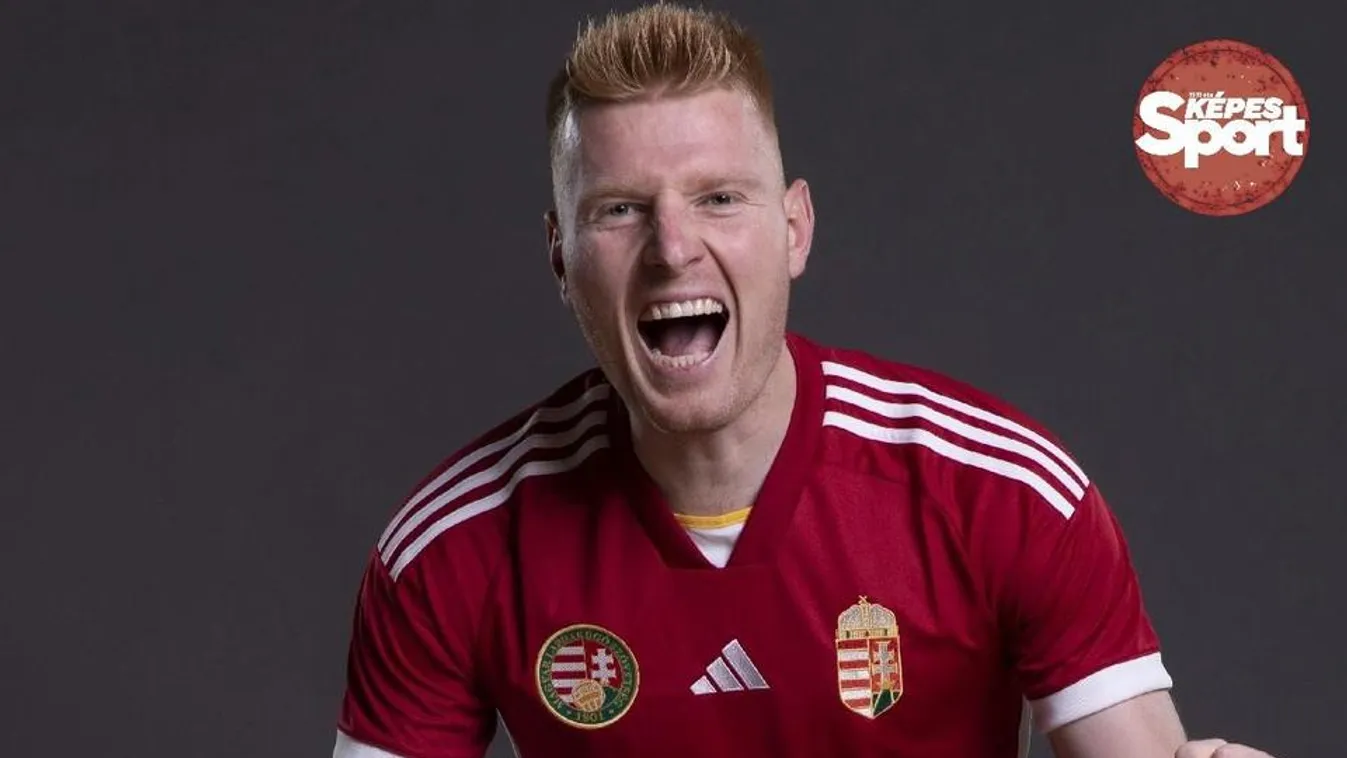
| Born: June 9, 1995; Győr |
| Position:midfielder |
| NB I matches/goals: 23/3 |
| Caps/goals: 29/3 |
| Clubs: Győri ETO (2013–2014), RB Leipzig (2014–2017), FSV Frankfurt (2016, on loan), Brøndby (2017, on loan), DAC (2017–) |
| Achievements: Hungarian champion (2013), Hungarian Super Cup winner (2013), Hungarian League silver medalist (2014), Slovakian League silver medalist (2019, 2021), 2-time Slovakian League bronze medalist (2018, 2020), Discovery of the Year (2014) |
– Does the number thirteen bring you luck or not?
– It almost always does! Or at least it has given me more good than bad, so I'm sticking with it. When I joined the first team of ETO, I had three numbers to choose from, and as the attached diagram shows, I chose number thirteen. Mainly because my father was born on January 13th, and I wanted to thank my family for what they had done for me. When I played in Leipzig, unfortunately, I couldn't wear it because it was occupied, but it was available in Dunajská Streda, and I also “inherited” it from Dani Böde in the national team.
– So, you're not superstitious.
– I am not. Despite my previous injuries. I don't attribute them to the number thirteen, but to something else. I'm just like fate was testing me for some reason.
– You seem to always come out victorious in the most difficult battles.
– I'm not the type to give up easily. My childhood dream was to be a footballer, and although I've achieved that, I'm not satisfied with just that. I want to play football for a long time to come.
– What do you consider your greatest strength?
– I can "see" the pitch, I pass well, I like to dribble, and my free kicks are dangerous. Whatever I'm good at, I try to help my team the most I can.
– No one disputes your playing ability, but would you agree that you are also strong mentally?
– After what I've been through, I can say yes. My personality has developed a lot after the serious injury I suffered in Andorra last March. What I hoped for has happened: I came back stronger!
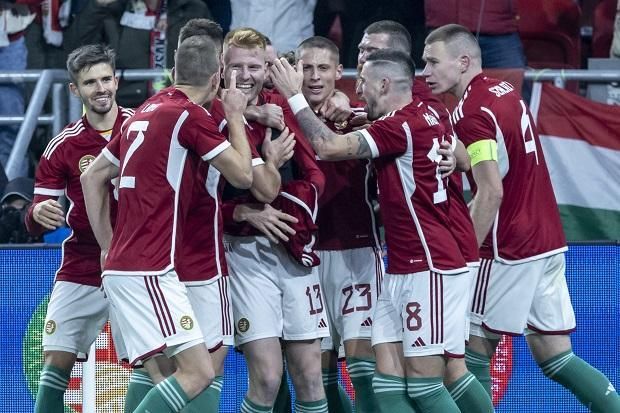
– How does this manifest itself?
– First and foremost, in my mindset. It may sound a bit strange, but I see a lot of things differently on the pitch, my game has become clearer. I had time to reassess things, I know what's important and what's not. I've been through a challenging period - but the important thing is that I'm over it.
– If we can talk about it: what was the most difficult during this time?
– When I realized what I was missing out. When they told me the exact diagnosis, that I had damaged most of my cruciate ligament, and at the same time informed me of the long period of inevitable surgery, I cried. My world was shattered because I knew immediately that I would miss the European Championships. In the months leading up to the World Cup qualifier against Andorra, I had been playing well at DAC and had reason to believe that I would be able to sign for a stronger league than Slovakia in the summer. It was actually lost in a second because of an unfortunate move - it was very difficult to come to terms with. But after the operation, all I could think about was what I had to do to get back as soon as possible. Though I had some experience of this, as I had had to climb out of a fairly deep hole more than once before because of various injuries. Nevertheless, I looked for the good in the bad: if I could do it before, I can do it again!
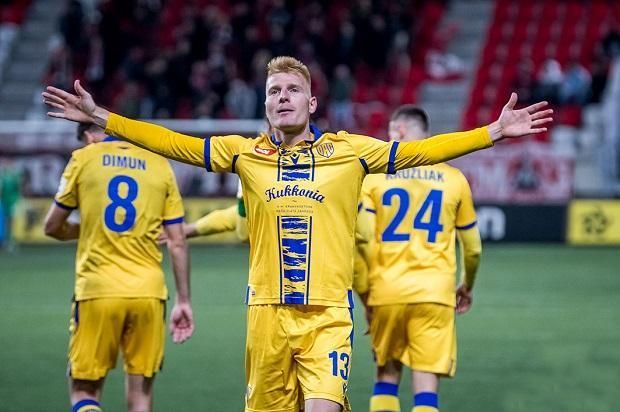
– What, or who is the main reason that you could do it?
– My friends and family. It was not the first time I made sure that I could always rely on my parents, my wife, my brothers and sisters and my friends. And then there's our little boy Noel, who is impossible not to smile for. My club has also helped me where they can, and I've also felt that the national team has always believed in me. The national team head coach, Marco Rossi came to see me often, emphasizing again and again that he was counting on me. I don't really need to go into how important trust is for a player - especially when he is injured. After the game against Greece, I thanked Marco Rossi for inviting me, and it really meant a lot to me that he was there for me, as well as the others I have already mentioned.
– In fact, you have repaid the trust, but before we get to that, let me ask you about the last year and a half. If you want to talk about it at all...
– Sure, no problem.
– In an earlier interview, you mentioned how you also owe a debt of gratitude to Imre Csernus. Have you kept in touch with him in recent months?
– When I was still a university student in Győr, he treated us, and the relationship never broke off, so if I had any problems, I could turn to him. I didn't talk to him after my cruciate ligament rupture, but what I had learned from him before was very useful. It helped me not to get to a point where I couldn't get back up. All I'm really looking for now is to get back to the form I showed before the Andorra game.
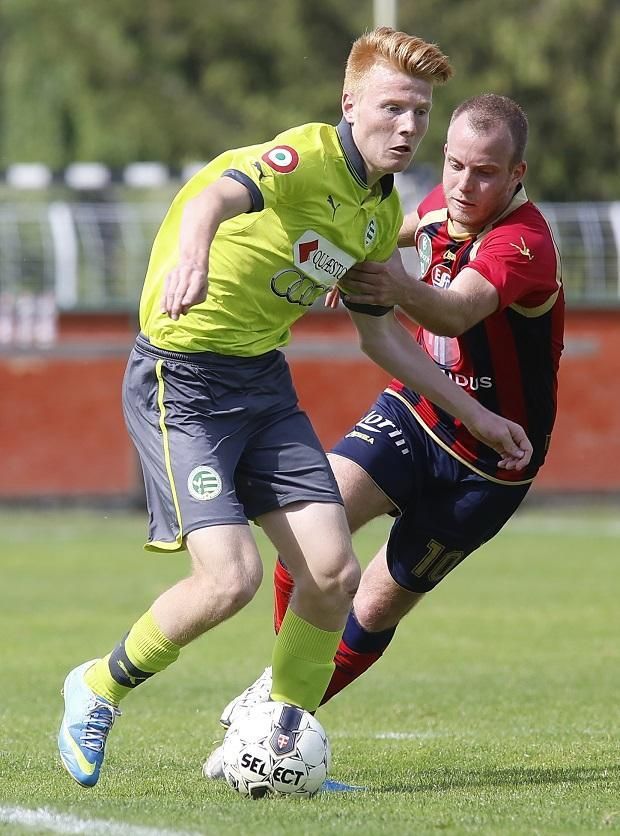
– You scored three goals and assisted once in the three tournaments prior to the games against Luxembourg and Greece. That seems to indicate that you have arrived at the national team in good form...
– If I look at the ratio of minutes played and goals scored, there is indeed no reason to complain. And looking at the last six games, I score a goal every 60 minutes on average. I'll be the top scorer if I keep doing it... On a more serious note, I'm happy that I'm getting better at football and that my "fine" movements are starting to come back, but I also feel that I'm not yet at 100%. For example, I got tired after 70 minutes while playing against Spartak Trnava. I still need some time to catch up to myself completely - the winter preparation is the perfect opportunity to do so. Let's not forget that I haven't played for sixteen months, and even a much shorter break than that doesn't go without consequences, let alone this long.
– When you hear Andorra, do you get chills?
– Many people ask me that, but no. I'm over it, I've forgotten about it. Two weeks ago, we played in Trenčín, where the artificial turf is the same as in Andorra, but I never thought for a second that it could cause any problems again. The quality of the surface must have had something to do with my injury, but that doesn't mean I'll never play on artificial grass again. I have no fear!
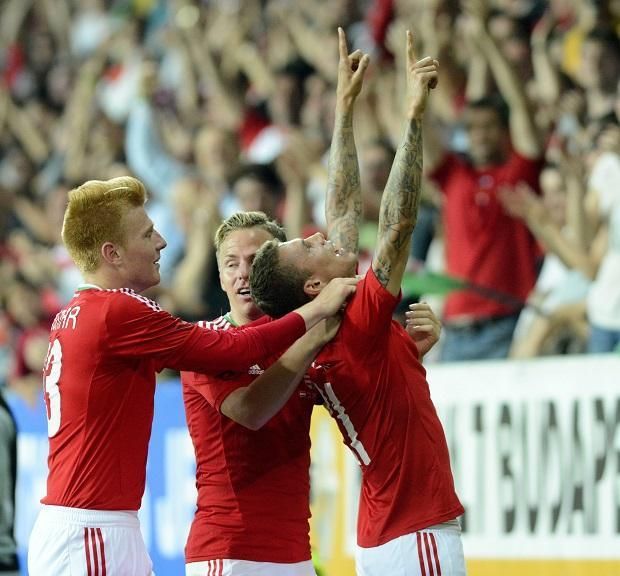
– During the most difficult days, did you ever think for a moment that you would give up?
– No! I believed all along that I would come back. Even when it became clear that my rehabilitation was going to take longer than I had hoped because my knee was inflamed. As I said, I was surrounded by good people, there was always someone to help me through the deadlock. Dr. Ernő Majzik, who operated on me, was also a constant source of encouragement, I went to him every two weeks for check-ups, and he always reassured me that my muscle was recovering nicely. Under the supervision of physiotherapist Krisztina Radó, rehabilitation specialist Bence Gál and the DAC strength and rehabilitation coaches, I have put in a lot of hard work to be able to talk about all this in the past tense, and it seems to have been worth it. I'm comfortable in my skin, I score goals, the tackles are in place and so are the passes while I'm moving on!
– Let's stop for a moment. At the Luxembourg match, you were able to put on the jersey again after five hundred and ninety-six days...
– Getting an invitation to be back with the team already meant a lot to me. It was great to revise the tactics... I didn't think the head coach would ask me to play a few minutes in both games, and of course, I was pleased. I was also happy the way the others welcomed me as if I hadn't been absent for almost a year and a half. We immediately found common ground, picked up where we left off and laughed as much as we used to.
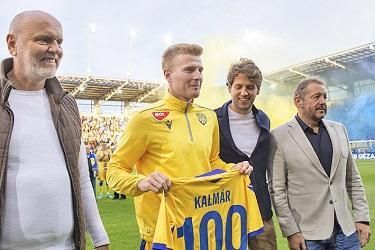
– Were there any players to whom you had to introduce yourself?
– The only one I hadn't met before was Péter Szappanos. He is a good goalkeeper and a good person.
– Did he save your free kicks in training?
– Oh, no, he had no chance...
– Is it true that you scored the same free kick goal at the end of one of the training sessions as you later did against Greece?
– It happened two days before the game. I stayed with Dominik Szoboszlai and Balázs Dzsudzsák to train, and I scored a nice goal. The difference between that and the one against Greece was that I shot it from further away, but still into the long corner.
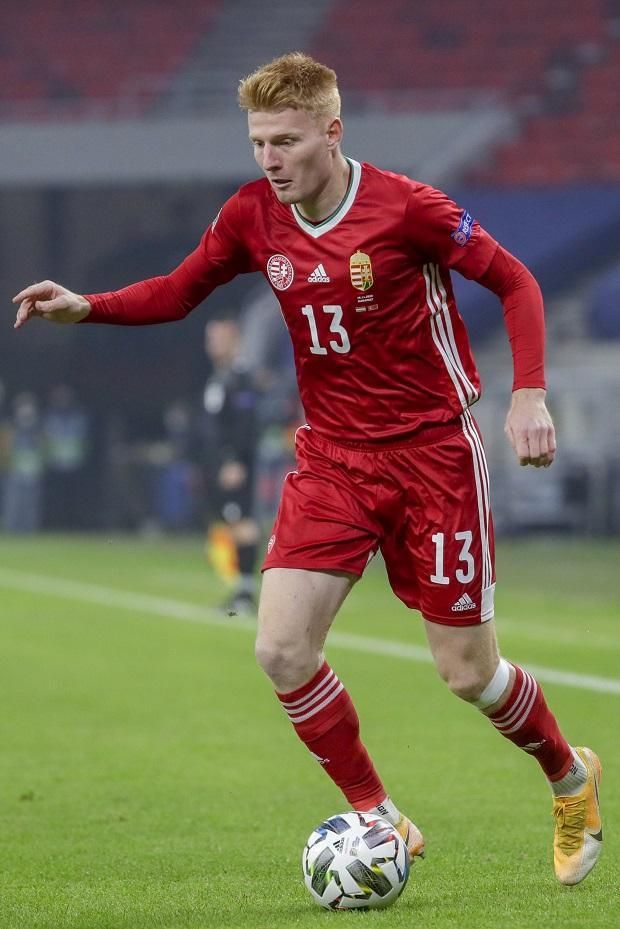
– The news reports you had a "whisperer"...
– We have an excellent team behind the scenes, one of the key staff members is our video analyst, István Beregi, who provides us with a wealth of useful information. And this time was no different either: we received a video of the Greek goalkeeper, Alexandros Paschalakis, showing his defensive habits and positioning. It showed that he often steps behind the defensive wall when taking free kicks, which means he leaves the long corner open. When I put the ball down, I knew I was aiming for the left side of the net, and I was confident that Paschalakis would do what he usually does. He did, he stepped behind the defensive wall, and I shot into the empty corner.
– When it seemed like you might not even play at all...
– Don't remind me! Peti Szappanos and I had been hovering on the sidelines for minutes, but the ball just wouldn't go out, not even a foul happened... Peti was a rookie waiting to go on the field, and I wanted to play as much as possible. Imagine what we had been through. Then finally, the ball was out of bounds, and we ran up the pitch. I actually arrived at the right time because after the throw-in, Martin Ádám possessed the ball and then earned a free kick. I immediately said to the others, “Sorry, but I'm going to shoot this one.” It was my first touch - thank God, it ended with a goal. It was a breath of fresh air just to play a few minutes in Luxembourg, but in hindsight, I'd say that goal was my real comeback. And more importantly, because it was worth a victory, we were able to say a nice farewell to the year and to Balázs Dzsudzsák, who was playing his last game for the national team. It was no coincidence that I said after the final whistle that I dedicated my goal to Balázs because he has given so much to Hungarian football.
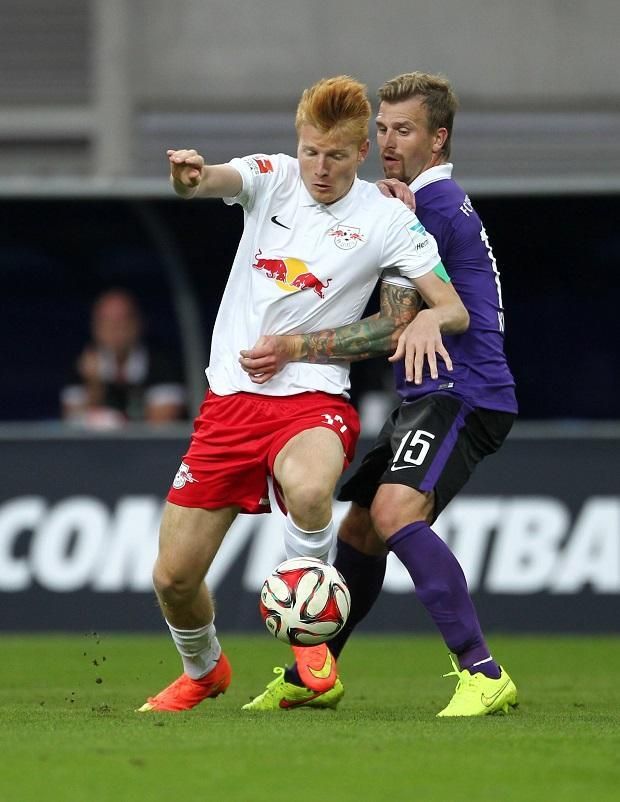
– What did this goal give you?
– A lot! I got to play in the most beautiful stadium in the world, the Puskás Aréna, in a fantastic atmosphere, and I scored a goal - a huge weight off my chest.
– That's right, I'm not in the habit of ripping my shirt off after scoring a goal. If I'm not mistaken, I've never gotten a yellow card for it before. I didn't mind the referee giving me one that time, it was a one-time thing. I wanted to send a message by taking off my shirt and showing the number thirteen to the camera. On the one hand, it was for those who didn't believe in me because they can now, and on the other, it was a message that if you don't give up and fight tirelessly for your goals, there is a way out of the most difficult situations, too.
– I assume you kept your jersey.– You bet! I've been happy to give a jersey as a gift or donate it to charity, but I'm already keeping the shirt I wore against the Greeks at home. I'll definitely keep it for myself - it'll be nice to look at it from time to time...
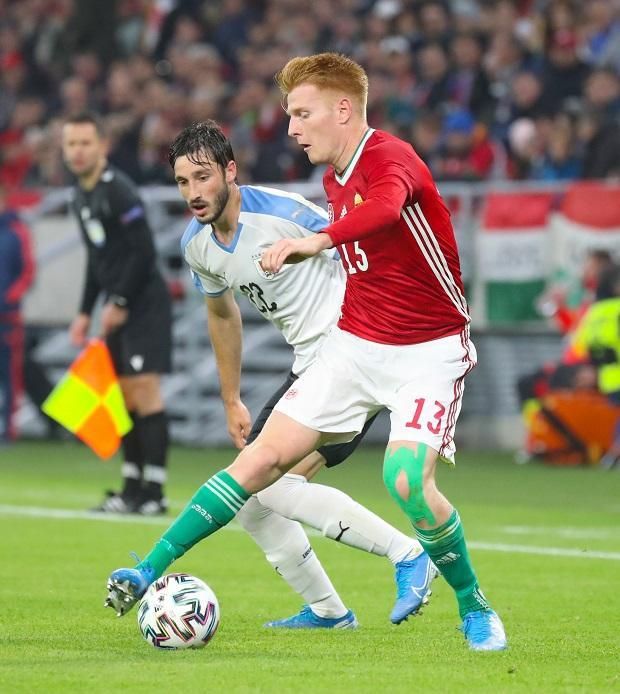
– Eight years ago, you took home his first jersey with the coat of arms on it. It's a big deal that you've been a member of the national team ever since, isn't it?
– I am very happy! I wasn't even 19 when I made my debut, and Attila Pintér trusted me enough to make me play against Denmark in Debrecen. I can't say that I became an indispensable link in the squad in a short time. For example, when I played for FSV Frankfurt and then for Brøndby, I didn't even get an invitation. I did from DAC, and since 2017, not a year has gone by without me playing for the national team. I became a regular for Marco Rossi's team and was enjoying every moment of representing my country - until the injury. Now I have twenty-nine caps, which is not many when you consider that it's been eight years since my debut, but I'm proud of what I've achieved, and I hope to wear the jersey a few more times.
– If you could add twenty-one more and retire with fifty caps behind you, would you sign it?
– Can you give me a pen? I would sign it, yes! Fifty is a nice round number, and I think I have a chance of getting there. I've been very determined since I came back, that's the truth. Perhaps more determined than ever!
– Do you also believe that what fails twice will work the third time?
– I assume you're referring to my European Championship appearance... Unfortunately, I have not yet had the chance to play in the European Championship, Bernd Storck didn't count on me before the tournament in France, and I missed the last one because of an injury I suffered in Andorra. But I've just told you how determined I am, so I firmly believe that not only the Hungarian national team will qualify for the next European Championship, but I will too. More than anything else, I want to experience what the boys did six years ago and just this past year. Last June, I was still on crutches, but I was in the stands of the Puskás Aréna for the match against Portugal. It was amazing! I got goosebumps the whole time and kept thinking how great it would be if I could have that experience. So yes, I'm really looking forward to the European Championship in Germany in two years.
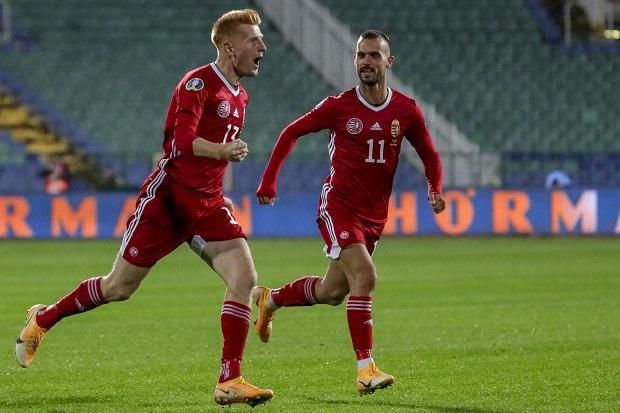
– As things are now, you could participate in it as a DAC player.
– Correct! The day after the game against Greece, I signed my contract until 2025. I am delighted that the club has so much confidence in me. I have never hidden how much I got from Dunajská Streda. I came here at the age of 22, after being somewhat disappointed by what had happened in Germany and Denmark. Here, I was given everything I needed to build myself up. I had three serious injuries, but the club was always there for me. DAC and everything that surrounds it has grown close to my heart. I will always be grateful that I could feel like a footballer again in Dunajská Streda. And last but not least it's because of the fans! It is a great experience to play in front of such fans. Every goal, every success has an amazing effect on them, and on us of course. I feel good, I'm captain of the team, I do everything to lead the team to more and more victories. If we've talked about my goals for the national team, we can also talk about what I dream of at club level: to finally win the league! If there's one team that deserves to win the gold medal, it's DAC! We are on the right track, we are right behind leaders Slovan but we will have to work extremely hard in the next season to dethrone them.
– Something tells me you believe in that, too.
– If I didn't, I wouldn't be playing football in Dunajská Streda. Since I came here, I've tried to do my best every single day. I want to do my best to make our wish come true. At the age of twenty-seven, I'm already an experienced fox, so I have to be a leader on and off the pitch.
– Can you imagine playing football for DAC for the rest of your professional career?
– If I am needed, if I am counted on, yes. I'm closer to 30 than to 20, and even though the end is near, why not stay here "forever!" I love playing football here, I'm loved, too. Do I need more? After what I've been through, I value every minute on the pitch to the max, I want to enjoy every day of playing football. I plan to play until I'm thirty-six or thirty-seven years old, and I'm looking forward to many more great years of success.
– After all this, what else can I wish for you in the end but wear the jersey number 13 in good health for a long time!
– Thank you! I hope I can, in fact, yes, I will!
(The article appeared in the Saturday supplement of Nemzeti Sport, in the November 26, 2022 issue of the magazine, Képes Sport.)
Translated by Vanda Orosz.
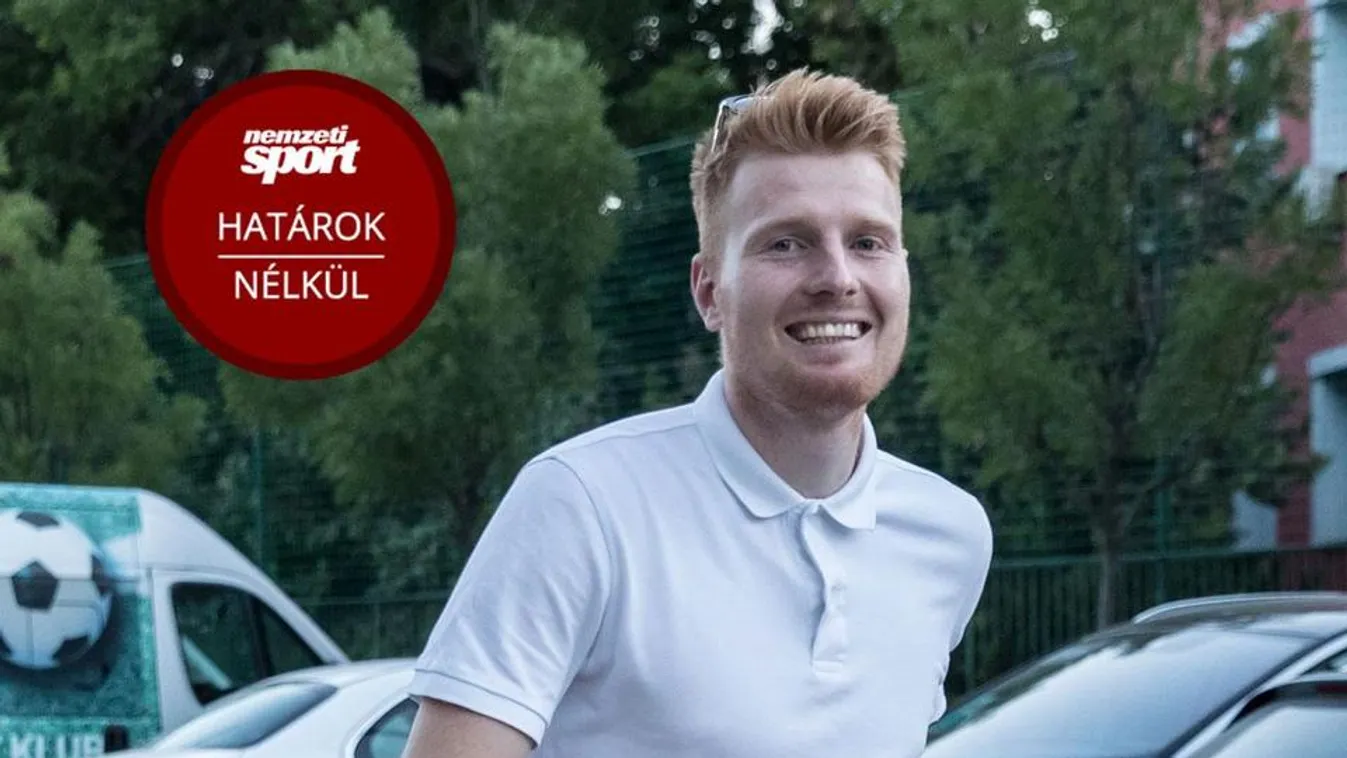
Zsolt Kalmár: My recovery is progressing very well
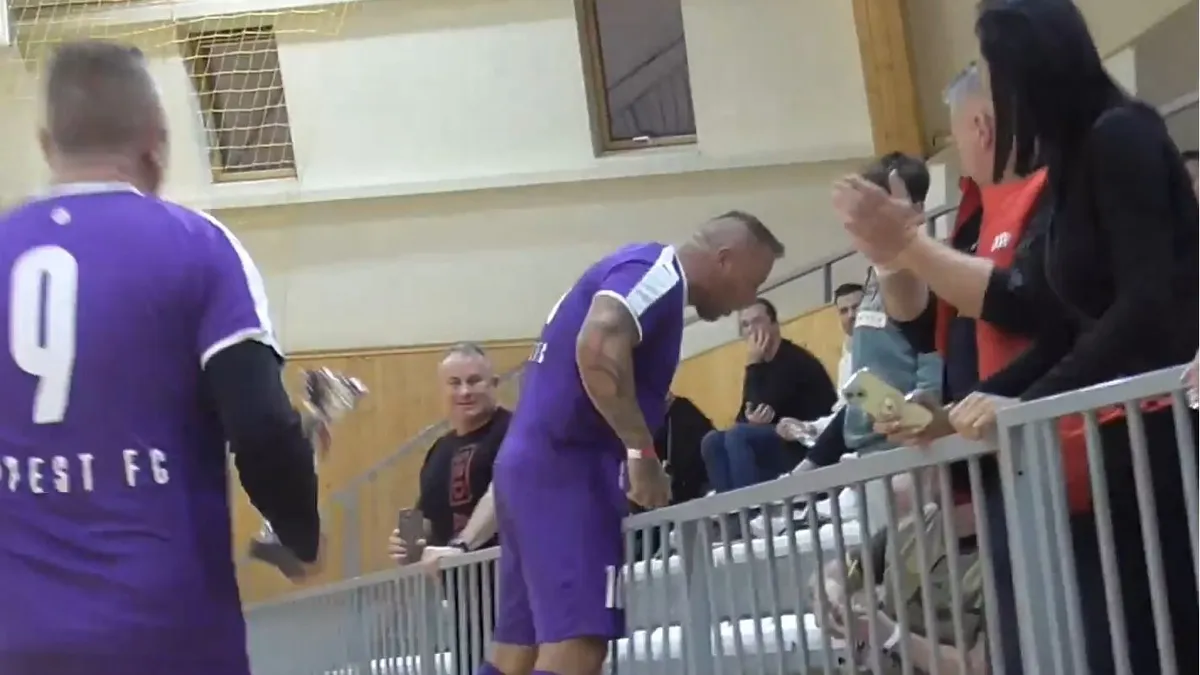
Curtis pofonvágta az őt gyalázó szurkolót a lelátón
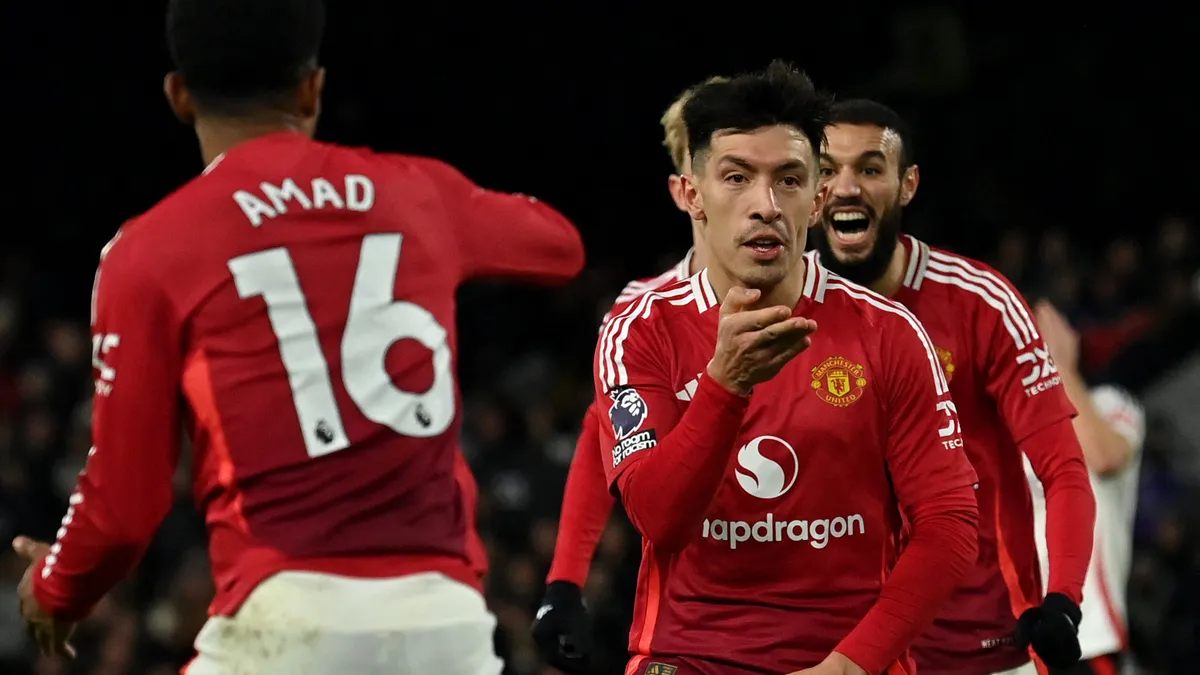
Az MU egyszer találta el a kaput, de egy szerencsés góllal így is nyert
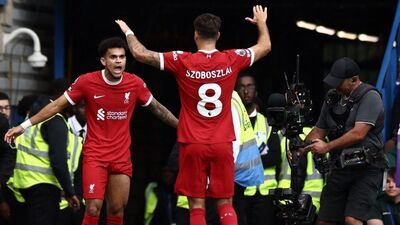
Ez nem hiányzott: Szoboszlai Dominik még egy világsztár miatt aggódhat!
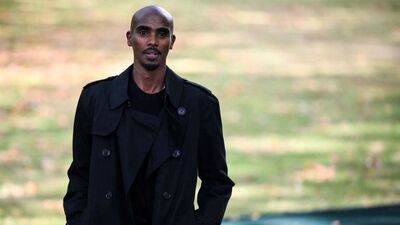
Milliárdokért árulja luxusotthonát az olimpiai bajnok

Villámgyors finomság – az 5 legjobb tejbegrízrecept
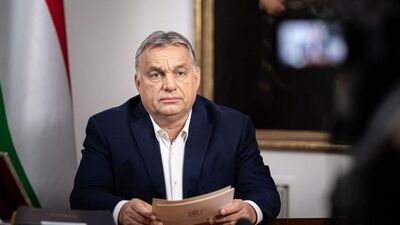
Orbán Viktor elutazik, ezen a helyen magyar kormányfő még nem járt
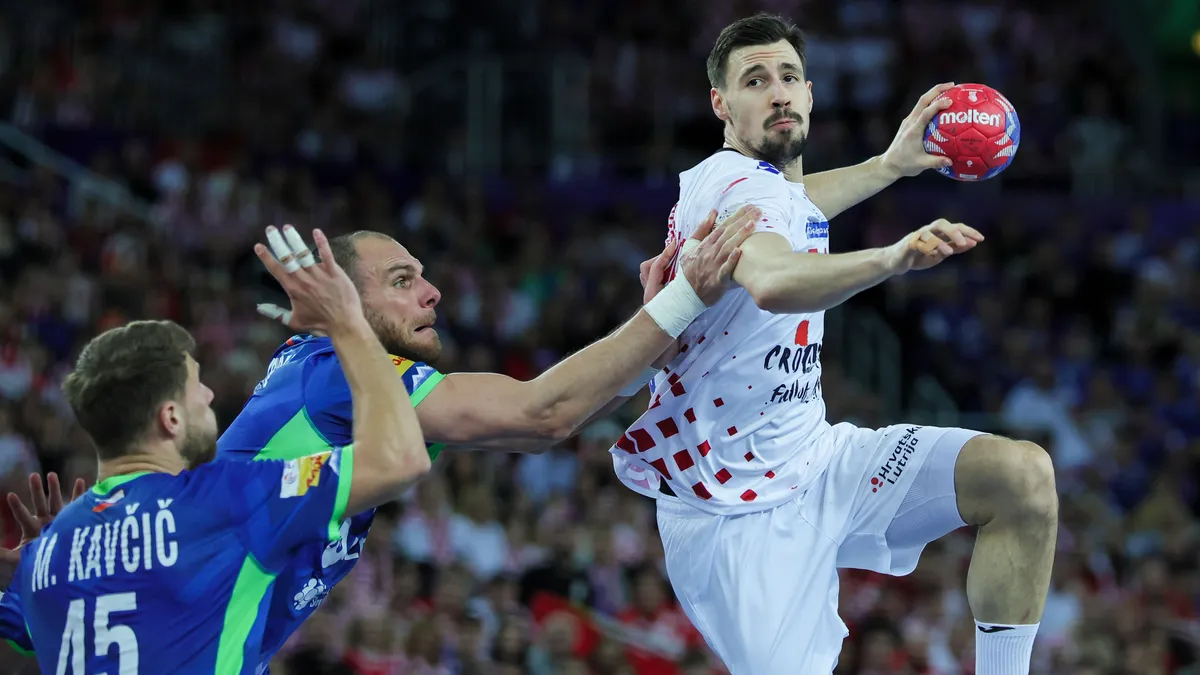
A szlovénokat legyőző Horvátország lesz a mieink negyeddöntős ellenfele kedden 18 órakor a kézi-vb-n
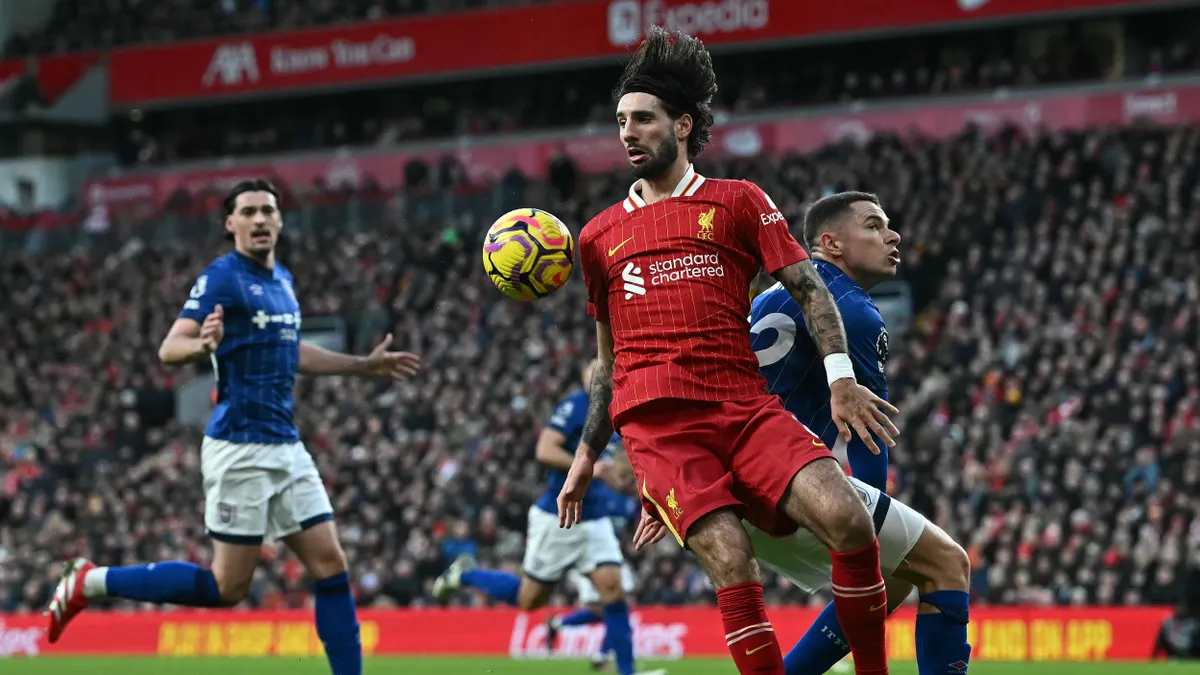
Szoboszlai szenzációs passzán ámul a világ - videó
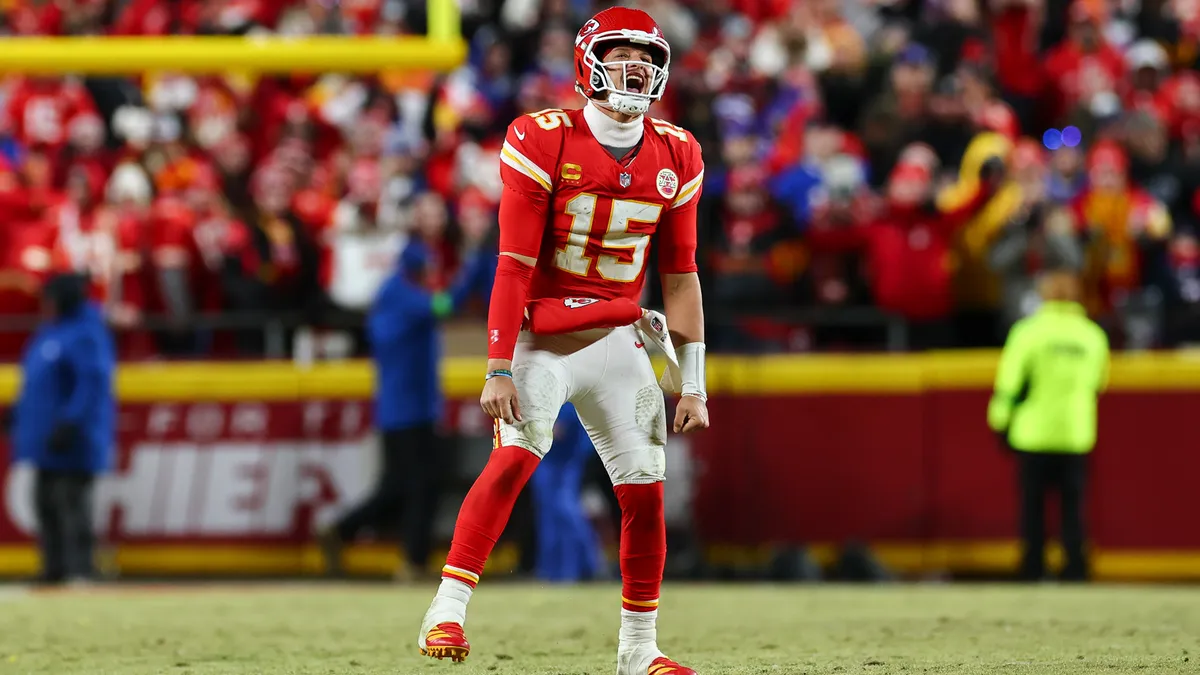
A Chiefs újabb drámai meccsen nyert a Bills ellen – triplázás kapujában a Kansas City!
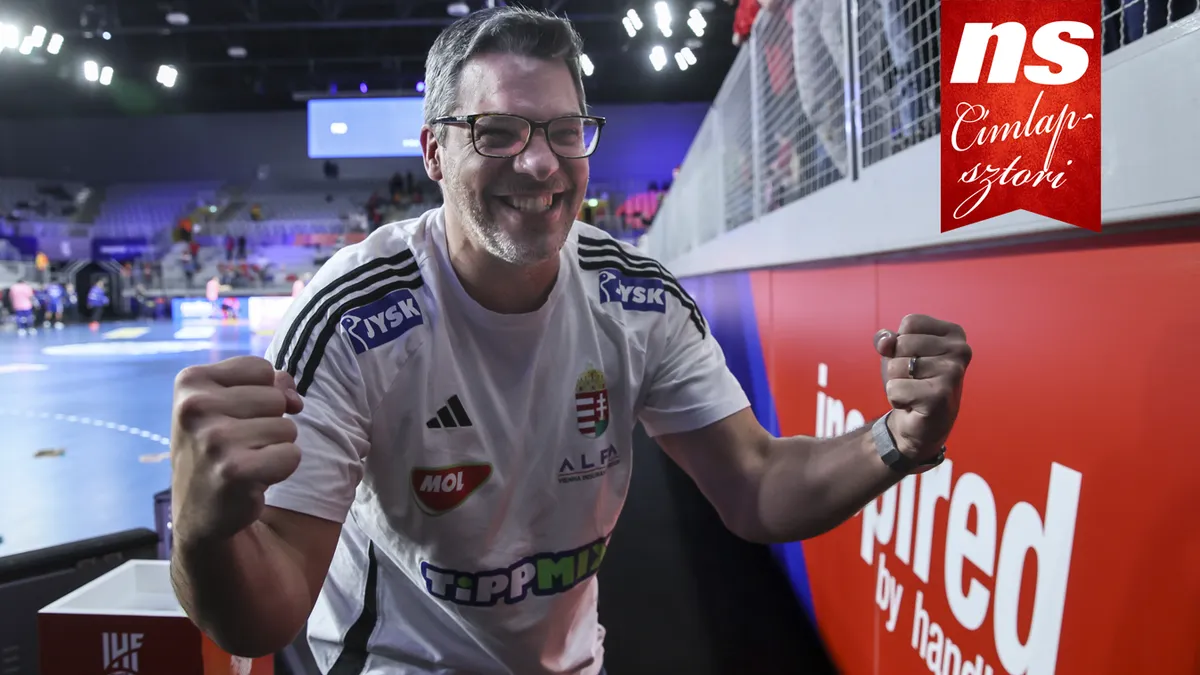
Chema Rodríguez: Óriási dolog, hogy sorozatban harmadszor ott vagyunk a nyolc között
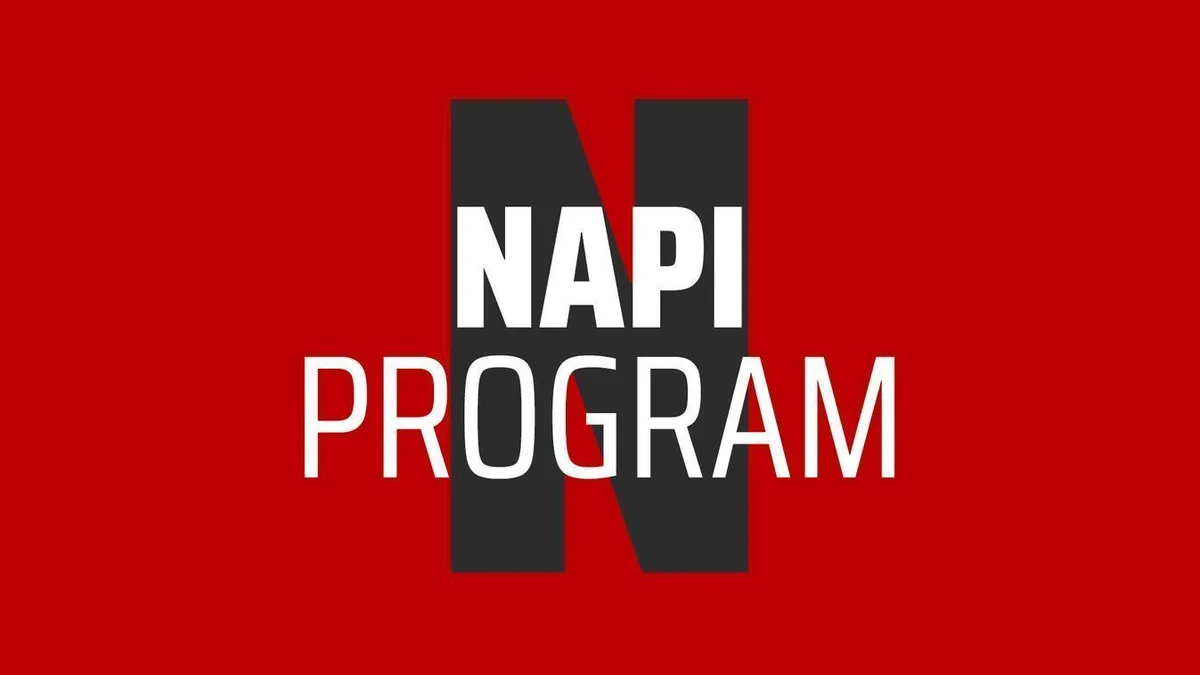
Hétfői sportműsor: olasz, spanyol és angol futball, magyar futsal
